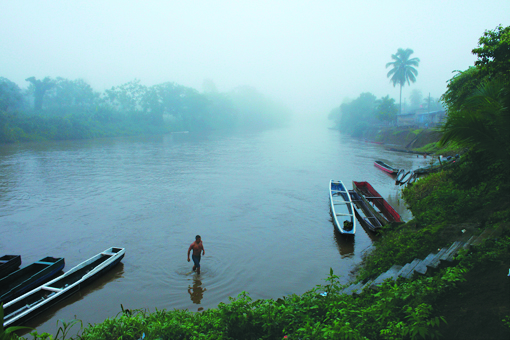In April last year, the Colombian government announced its intention to pursue the creation of an interconnected electrical grid from Mexico to Tierra del Fuego. Naming the project “Connecting the Americas 2022” (“Connect 2022” ), the Colombians had picked up the idea from Washington and included it in last year’s agenda at the Summit of the Americas.
The goal, as defined by the hemispheric governments that attended the summit, is to create an integrated electrical grid that can provide universal access to electricity through enhanced energy interconnections, power sector investments, renewable energy development, and cooperation. Should it succeed, the project will bring together regional electricity grids, including the Central American electrical grid, known by its Spanish acronym, SIEPAC (see Jeremy Martin’s article on the difficulty of completing SIPAC on page 102 of this issue), with South American networks. Completing it, though, requires passing through the Darién Gap.
A thin neck of impenetrable rain forest the size of Jamaica, linking Panama to Colombia and South America, the Darién Gap has long served as a buffer zone between the two neighbors. Stemming from historic concerns for its own geopolitical security, Panama has also sought to protect the rain forest and its Indigenous peoples against incursions.
The proposed power grid is not the only project that has been stalled by efforts to keep that buffer zone intact. Plans to complete the Pan-American Highway, which started in 1997 and involved closing the last unconstructed section of the 29,800-mile (470,960-kilomter) north-south road link in the hemisphere, have been held up in a similar way. Today, the northern section of the road stops just north of Darién province, and only a few intrepid tourists enter the rain forest on dirt trails.
Could a hemispheric electrical connection plug the Darién Gap, if a highway can’t? The answer is a cautious “maybe”…





